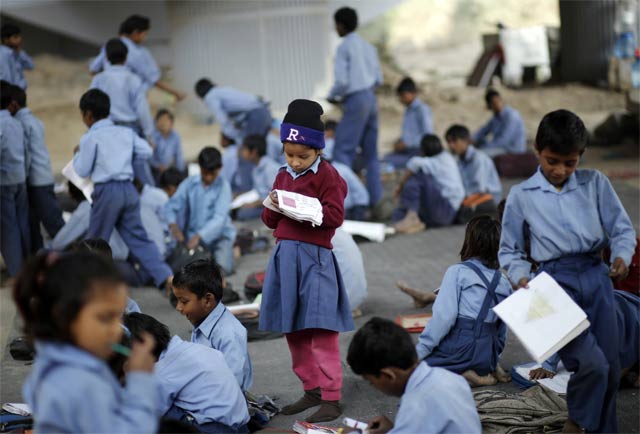
On October 30, 2015, the K-P government announced plans to standardise 200 government higher secondary schools for boys and girls. So far, the government has started standardisation work on 70 schools – including 23 girls schools and 47 boys schools.
According to the K-P Elementary and Secondary Education Department’s (E&SED) documents, the existing buildings of the school will be repaired and their height would be increased during the standardisation process.
New classrooms, multipurpose halls, computer interactive boards, toilets, sports grounds, filter plant for clean dirking water, fully equipment science labs, facilities for disable students, sewerage system and parking for vehicles will be constructed in these schools.
The school will also be provided with solar panels along with electricity. The school to be standardised in the first phase include five schools [4 girls and 1 boys] in Bannu, eight [3 girls and 5 boys] in DI Khan, five [2 boys and 3 girls) in Karak, five [for boys] in Lakki Marwat, two [for boys] in Hangu, one[for boys] in Kohistan, two in Mansehra, four in Buner, three in Upper Dir, four [2boys and 2 girls] in Malakand, four [1girls, 3 boy] in Shangla, Six [2 girls, 4 boys] in Swabi, four [2 boys, 2 girls] in Swat.
A government schoolteacher in Peshawar, Hazrat Shah Jehan, appreciated government’s effort for standardisation of schools in different districts.
He said it was not possible for the government to establish equal standard at all schools at a same time. “For the first time computerised interactive boards have been installed for science students in labs. The civil society and parents should also play their role in supporting government,” he said.
Talking to The Express Tribune, the E&SED Media Adviser Najibullah Khattak confirmed that standardisation work on 70 schools would be complete in June 2017.
“In the first phase, the government has selected those districts where the higher schools facilities are less or not sufficient. In the second phase, government will also take this initiative in remote districts while in the third phase it will extend to urban districts,” he said.
Published in The Express Tribune, February 12th, 2017.

















COMMENTS
Comments are moderated and generally will be posted if they are on-topic and not abusive.
For more information, please see our Comments FAQ